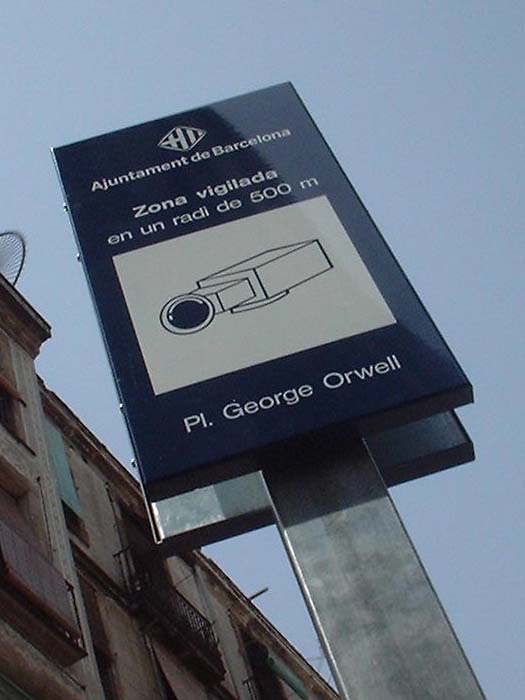by orwell
Saturday, Oct. 13, 2001 at 4:23 PM
"But which buggers they didn't ought to have trusted Winston could not now remember. "

zona_kp03kq.jpg, image/jpeg, 525x700
'We didn't ought to 'ave trusted 'em. I said so, Ma, didn't I? That's what comes of trusting 'em. I said so all along.
We didn't ought to 'ave trusted the buggers.
But which buggers they didn't ought to have trusted Winston could not now remember.
Since about that time, war had been literally continuous, though strictly speaking it had not always been the same war. For several months during his childhood there had been confused street fighting in London itself, some of which he remembered vividly. But to trace out the history of the whole period, to say who was fighting whom at any given moment, would have been utterly impossible, since no written record, and no spoken word, ever made mention of any other alignment than the existing one. At this moment, for example, in 1984 (if it was 1984), Oceania was at war with Eurasia and in alliance with Eastasia. In no public or private utterance was it ever admitted that the three powers had at any time been grouped along different lines. Actually, as Winston well knew, it was only four years since Oceania had been at war with Eastasia and in alliance with Eurasia. But that was merely a piece of furtive knowledge which he happened to possess because his memory was not satisfactorily under control. Officially the change of partners had never happened. Oceania was at war with Eurasia: therefore Oceania had always been at war with Eurasia. The enemy of the moment always represented absolute evil, and it followed that any past or future agreement with him was impossible.
The frightening thing, he reflected for the ten thousandth time as he forced his shoulders painfully backward (with hands on hips, they were gyrating their bodies from the waist, an exercise that was supposed to be good for the back muscles) -- the frightening thing was that it might all be true. If the Party could thrust its hand into the past and say of this or that event, it never happened -- that, surely, was more terrifying than mere torture and death?
The Party said that Oceania had never been in alliance with Eurasia. He, Winston Smith, knew that Oceania had been in alliance with Eurasia as short a time as four years ago. But where did that knowledge exist? Only in his own consciousness, which in any case must soon be annihilated. And if all others accepted the lie which the Party imposed -if all records told the same tale -- then the lie passed into history and became truth. 'Who controls the past,' ran the Party slogan, 'controls the future: who controls the present controls the past.' And yet the past, though of its nature alterable, never had been altered. Whatever was true now was true from everlasting to everlasting. It was quite simple. All that was needed was an unending series of victories over your own memory. 'Reality control', they called it: in Newspeak, 'doublethink'.

